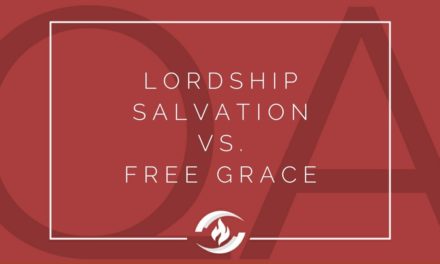Q.
In 2 Corinthians 3:6-7, Paul calls the “law” the “ministry of death” and contrasts it with the Spirit as the “ministry of life.” The way I understand this is that the law can only reveal sin and condemn. However, the indwelling Spirit imparts the law-fulfilling, indwelling Life of Christ to us. As we depend on the Spirit, we are able to keep the law by His enabling.
In contrast, James 1:25, 2:12 uses the phrase the “law of liberty.” It seems that Paul and James are characterizing the law quite differently – one as death, and one as liberating.
I was recently in a bible study where the teacher used this reference in James to assert that law-keeping accesses grace and freedom for the Christian in their walk with the Lord. Quite honestly it seems quite opposite from most of the New Testament teaching. But I am struggling to understand these verses in James.
Can you please clarify? Thank you.
Irene
A.
Hello Irene,
Good thoughts and great question. First, your thoughts on 2 Corinthians 3 are accurate. The law has no power to enable. Rather, it shows us when we do wrong (cf. Rom. 5:20). So yes, the law does not remove sin; it reveals sin and condemns it. This, the letter of the law without the Spirit, kills (2 Cor. 3:6). As such, it is called the ministry of death (2 Cor. 3:7).
In James, the key is understanding the phrase “law of liberty.” When the Mosaic law is meant, then the reference is usually the “law.” When a descriptive phrase is added, it is often informing us of something other than the Mosaic law. In fact, in the context of James 2, several usages of the word law are used. There is the “royal law” defined in it’s immediate context as, “Thou shalt love thy neighbour as thyself” (James 2:8). There are also several references to “law” or “whole law” (James 2:9,10,11). These refer to the Mosaic law, and the emphasis is that you can’t just pick and choose—break one law and you have broken the whole law. Then, the passage mentions the “law of liberty.”
The emphasis of the phrase law of liberty is different than just the law. The phrase is used only twice in the New Testament, and both instances are here in James. To get at the meaning, a look at similar Pauline passages will shed some light.
Paul explained, “For the law of the Spirit of life in Christ Jesus hath made me free from the law of sin and death” (Rom. 8:2). Since the law of the Spirit of life in Christ frees, it can reasonably be argued that this is the law of liberty. Paul taught further, “Stand fast therefore in the liberty wherewith Christ hath made us free, and be not entangled again with the yoke of bondage” (Gal. 5:1). The word liberty is explicitly connected to Christ. Liberty is the way of faith in Christ alone. Bondage is the way of works in attempting to keep the law through self-dependence. So Paul encourages the Galatians to stand fast in the liberty of Christ, to keep looking unto Jesus, and to not return to the bondage of works-dependence.
Now back to James. Notice the precise wording, “But whoso looketh into the perfect law of liberty, and continueth therein, he being not a forgetful hearer, but a doer of the work, this man shall be blessed in his deed” (James 1:25). We are first to look into the perfect law of liberty. We are to look unto Jesus (Heb. 12:2). Then we are to continue. The word continueth is the word for abide combined with a preposition meaning near. The word abide is the picturesque term for believe (cf. John 15:4-5). So we are to look in faith to Jesus, and keep abiding/depending on Him. When we do, the law of liberty—the law of the Spirit of life in Christ—frees us to obey with the animation of divine life. The way to be a “doer of the word” in James 1 is through looking unto the living Word, Jesus. This is the law of liberty. It is the Spirit-filled life.
Law-keeping doesn’t access grace because grace then would become meritorious, and merit would nullify grace. Paul said, “I do not frustrate the grace of God: for if righteousness come by the law, then Christ is dead in vain.” (Gal. 2:21). Rather, faith in Jesus—the law of liberty—accesses grace.
We’d love to hear your thoughts on this subject in the comments section below! If you have a question on another subject, we welcome you to make a submission by clicking here:












Well said!
My God given desire to love and obey God is met in Jesus Christ. I don’t frustrate the grace offered to me to have faith in Christ. I embrace it!
Thank you very much for this explanation through Romans 8 – scripture explaining scripture. The law of the Spirit of Life sets us free… to abide/cooperate/obey from Him as our source. This opens up the entire book of James in a new light for me.